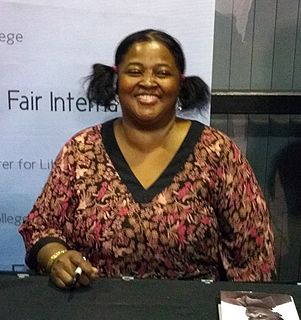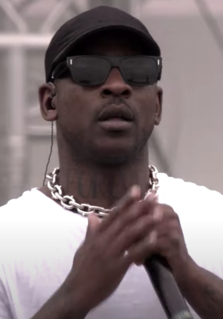A Quote by Wole Soyinka
You go to conferences, and your fellow African intellectuals - and even heads of state - they all say: 'Nigeria is a big disappointment. It is the shame of the African continent.'
Related Quotes
China surely must be interested in a more stable, non-antagonistic relationship with the African continent precisely because of its own needs. And therefore would have to say in our own interests, as China, it is necessary that we participate in the process of the development of the African continent.
What moved us was not so much what would it do for South Africa, but there has been a great keenness on the Continent that the location of the Pan African Parliament must add to its credibility. And, so we said, fine, it's a contribution to this process of the democratisation of the African Continent.
For centuries, Europeans dominated the African continent. The white man arrogated to himself the right to rule and to be obeyed by the non-white; his mission, he claimed, was to "civilize" Africa. Under this cloak, the Europeans robbed the continent of vast riches and inflicted unimaginable suffering on the African people.
So for everybody who allows themselves to be separated from me because I said "African" instead of "Nubian" or "Black" or "Kemet" or "original" or "Israelite," don't be so foolish. I say "African" because the continent of Africa is the land from which we all originate. It is the word that we are most familiar with right now.
So for everybody who allows themselves to be separated from me because I said 'African' instead of 'Nubian' or 'Black' or 'Kemet' or 'original' or 'Israelite,' don't be so foolish. I say 'African' because the continent of Africa is the land from which we all originate. It is the word that we are most familiar with right now.
Writing in African languages became a topic of discussion in conferences, in schools, in classrooms; the issue is always being raised - so it's no longer "in the closet," as it were. It's part of the discussion going on about the future of African literature. The same questions are there in Native American languages, they're there in native Canadian languages, they're there is some marginalized European languages, like say, Irish. So what I thought was just an African problem or issue is actually a global phenomenon about relationships of power between languages and cultures.
One of the things that made the Black Muslim movement grow was its emphasis upon things African. This was the secret to the growth of the Black Muslim movement. African blood, African origin, African culture, African ties. And you'd be surprised - we discovered that deep within the subconscious of the black man in this country, he is still more African than he is American.
When Marcus Garvey died in 1940, the role of the British Empire was already being challenged by India and the rising expectations of her African colonies. Marcus Garvey's avocation of African redemption and the restoration of the African state's sovereign political entity in world affairs was still a dream without fulfillment.
When I was a youth, to be called 'African' was a diss. At school, the African kids used to lie and say they were Jamaican. So when I first came in the game, and I'm saying lyrics like, 'I make Nigerians proud of their tribal scars/ My bars make you push up your chest like bras,' that was a big deal for me.
African Americans, in particular, saw their cumulative wealth crash. They used to have 10 cents on the dollar of the average white family. That 10 cents on the dollar that the African American family used to have crashed down to 5 cents on the dollar, given the focus of predatory lending on the African American community and the degree to which they were really devastated by the foreclosure crisis. So yeah, I think there is a lot of disappointment out there.




































